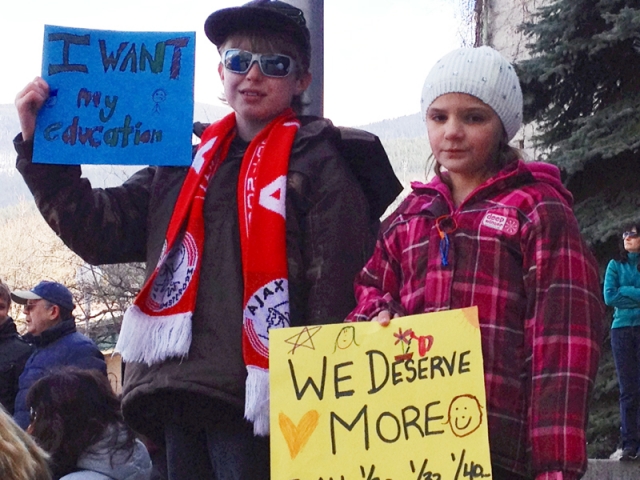It's official, Bill 22 passes into law Thursday
The B.C. legislature made it official, passing back-to-work legislation that temporarily ends a contract dispute with the province’s 41,000 teachers.
The new law will impose a six-month cooling-off period, ban strike action and see to the appointment of a mediator to try to work out a new contract.
Although the mediator must stick to the Liberal government’s “net-zero” wage package.
The “cooling off’ period will come into effect this Saturday, so that all strike activity must cease when schools resume following spring break.
“Now that Bill 22, the Education Improvement Act has been passed by the legislature and a mediator will soon be appointed, it’s time for everyone involved to pause and reflect on how we can work together to continue to improve our education system,” said Education Minister George Abbott.
The next step is the appointment of a mediator to work with the parties toward a negotiated settlement.
Abbott will be writing to both the BC Teachers’ Federation (BCTF) and the BC Public School Employers’ Association (BCPSEA) tomorrow asking that they submit names to be considered as potential mediators.
Minister Abbott will consider all submissions received from the two parties by Monday, March 26.
Once appointed, the mediator will work with both parties on issues of mutual concern. This will include issues raised by the BCTF – such as classroom organization and the local/provincial split of bargaining – as well as issues raised by the BCPSEA, such as professional development and teacher evaluation.
The new legislation does not impose a new contract.
Rather, it extends the existing contract to cover the mediation period.
If a new agreement cannot be reached by the beginning of summer, the mediator will make non-binding recommendations to government by June 30.
Bill 22 also implements a new Learning Improvement Fund of $165 million over three years to help school districts and teachers address complex classroom composition issues.
This fall, $30 million from the Learning Improvement Fund will be allocated to classrooms with the greatest need. This will be increased to $60 million the following year, and to $75 million every year after that.
























